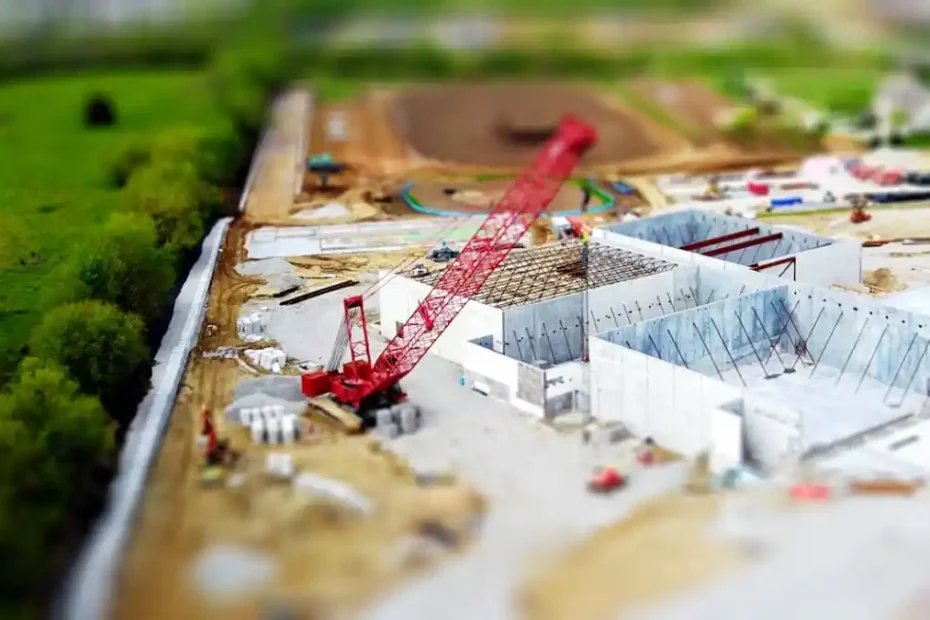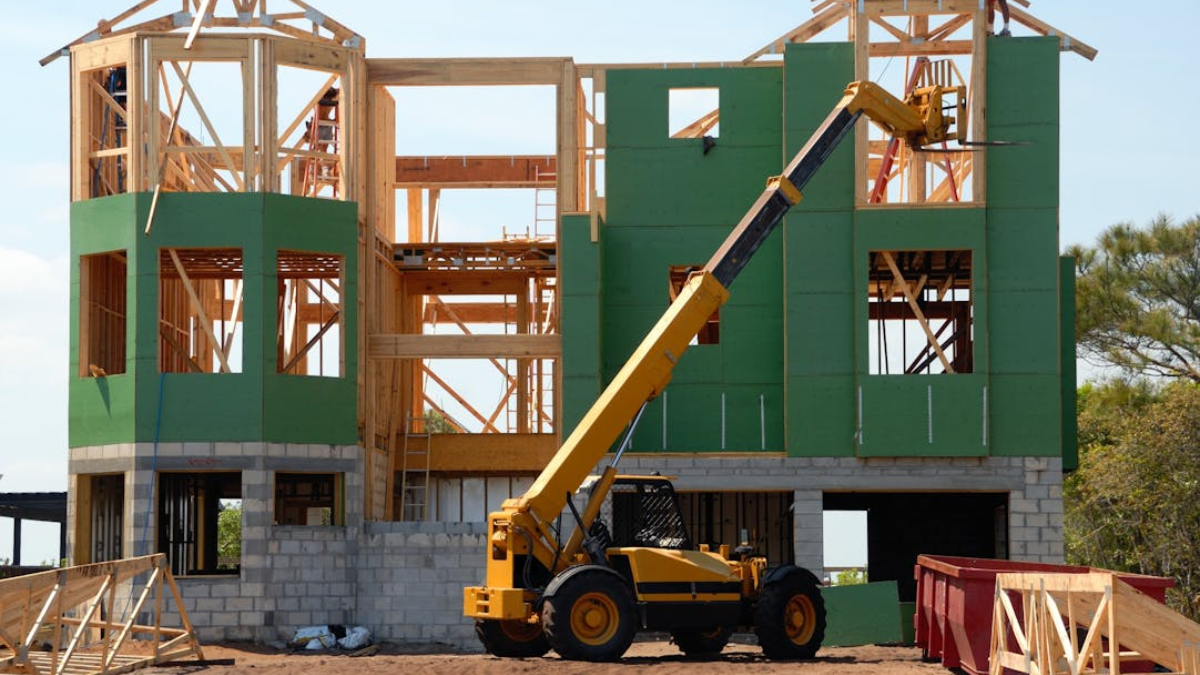This article will walk you through everything you need to know about construction loans, including how they differ from regular loans, the types available, requirements, and how to apply in Australia.
A construction loan is a specialised financing option that helps individuals or businesses fund the building of a new home or other construction projects.
Loans
Comprehensive Guide to Home Improvement Loans in Australia
In Australia, small loans AU are especially sought after for their convenience, flexible repayment options, and accessibility for various financial nee Small loans
You will continue on our website
If you’re considering taking out a construction loan, it’s essential to understand the process and the various options available to you.
What is a Construction Loan?
A construction loan is a short-term loan designed to help fund the cost of building a home or other property from the ground up.
These loans are typically given to borrowers who are purchasing land or building on land they already own. Unlike traditional home loans, which are disbursed as a lump sum, construction loans provide funds in stages as construction progresses.
The key feature of construction loans is the ability to access funds in phases, which aligns with the completion of specific stages in the construction process. These stages can include things like site preparation, foundation work, framing, and final touches. Once construction is complete, the construction loan is usually converted into a permanent mortgage or repaid in full.
How Does a Construction Loan Differ from a Traditional Loan?
While both construction loans and traditional home loans are types of mortgage loans, they have several key differences:
- Loan disbursement: traditional loans are disbursed as a lump sum when the loan is approved. In contrast, construction loans are given in instalments (also known as progress payments) throughout the construction process;
- Repayment structure: construction loans typically require only interest payments during the construction phase. Once the building is completed, the borrower may be required to refinance the loan into a permanent mortgage;
- Loan approval process: since construction loans are considered riskier than traditional loans, lenders often require a detailed construction plan, including costs and timelines, before approving the loan;
- Interest rates: construction loans typically have higher interest rates than traditional home loans, reflecting the increased risk for the lender.
Types of Construction Loans
There are several types of construction loans available in Australia, each suited to different types of borrowers and projects. The most common types include:
Standard Construction Loan
A standard construction loan is the most common type of loan used to fund the building of a new home or property. With this type of loan, funds are released to the borrower in stages based on the progress of the construction.
The borrower makes interest-only payments during the construction period, and once construction is complete, the loan is converted into a standard mortgage.
Construction-to-Permanent Loan
This type of loan combines both the construction loan and the permanent mortgage into one product. Rather than applying for a construction loan and later refinancing into a traditional mortgage, a construction-to-permanent loan allows the borrower to transition seamlessly from the construction phase to the permanent mortgage once the building is complete.
Owner-Builder Loan
An owner-builder loan is available to people who are acting as their own general contractor for the construction of their home. These loans come with specific requirements, including a demonstrated ability to manage the construction process and comply with local building codes.
Requirements for a Construction Loan in Australia
Before applying for a construction loan in Australia, there are specific requirements that need to be met. Lenders typically look for the following:
- Good credit score: a good credit score is essential to securing a construction loan. Most lenders will look for a credit score of at least 620, though some may require a higher score, depending on the loan amount and the lender’s criteria;
- Detailed construction plan: lenders will require a detailed construction plan that outlines the entire building process, including timelines, materials, and costs. This helps them assess the overall risk and ensure the project is feasible;
- Approval of the property: the property where the construction will take place must be approved by the lender. If you are building on land that you own, the lender will need to ensure that the land is suitable for construction and that it has the proper zoning;
- Builder’s license: if you are using a contractor for the construction, the builder must have the appropriate licenses and insurance to carry out the work;
- Deposit: you will typically need a deposit of at least 10-20% of the total construction cost. This deposit will help demonstrate your commitment to the project and ensure you have some financial skin in the game.
Documents Required for a Construction Loan
When applying for a construction loan in Australia, you will need to submit several documents to the lender. These typically include:
- Proof of Identity: Passport, driver’s license, or other government-issued identification.
- Proof of Income: Payslips, tax returns, or other documentation showing your income.
- Credit Report: A report detailing your credit history.
- Detailed Construction Plan: As mentioned, this is critical for assessing the viability of your project.
- Proof of Property Ownership: If you already own the land, you will need to provide proof of ownership.
Top Banks Offering Construction Loans in Australia
Numerous major banks in Australia offer construction loans with varying features and benefits. Here are three top options to consider:
1. Commonwealth Bank of Australia (CBA)
CBA offers a variety of construction loans with competitive rates and flexible terms. Their construction loan interest rates start from 6.00% p.a., with an LVR (Loan to Value Ratio) of up to 95% for eligible borrowers. The loan is available with both principal and interest or interest-only repayment options during the construction period. The bank also offers a “Construction and Renovation” loan package, which provides an easy transition from construction to a permanent mortgage.
The loan amount can be as high as $1.5 million, depending on the borrower’s eligibility and the value of the land and construction. There are no ongoing fees, but there may be establishment fees, typically ranging from $600 to $800. The loan is available for both new builds and renovations.
Requisites:
- Good credit score (usually above 620);
- Proof of income and assets;
- A detailed construction plan with estimated costs and timelines;
- Evidence of ownership of the land or an agreement to purchase.
Step-by-Step Online Application:
- Visit the CBA website or mobile app;
- Complete the online application form with your personal and financial details;
- Submit your detailed construction plan and required documents;
- Wait for the approval process, which may take up to 6 weeks;
- Once approved, the loan funds will be released in stages as construction progresses.
2. ANZ
ANZ provides a construction loan with interest rates starting at 5.99% p.a. for eligible borrowers, and an LVR of up to 90%. They offer both fixed and variable rate options, with the flexibility to make interest-only payments during the construction period. After construction, you can convert the loan into a regular home loan with competitive rates.
ANZ’s construction loan allows you to borrow up to $2 million, with fees ranging from $500 to $800 for establishment costs. This loan is designed for both new builds and substantial renovations, with additional features such as redraw facilities available after the construction is complete.
Requisites:
- Minimum deposit of 10-20% of the project’s total cost;
- Proof of income (e.g., payslips, tax returns);
- A detailed building contract and construction plan;
- Evidence of land ownership or an agreement to purchase the property.
Step-by-Step Online Application:
- Navigate to the ANZ website and select the construction loan option;
- Complete the online application form and upload your documentation;
- Provide your construction plan, timeline, and builder’s details;
- ANZ will assess your application and conduct a property valuation;
- Upon approval, the loan will be disbursed in stages during construction.
3. Westpac
Westpac offers construction loans with interest rates starting at 6.09% p.a. for a variable rate, and up to 90% LVR for eligible applicants. They offer both fixed and variable rate loans and give you the option to make interest-only payments during the construction period. Once construction is completed, the loan can be converted into a standard mortgage.
Westpac’s construction loan allows borrowers to finance up to $1 million, with additional features such as a loan offset account to reduce interest. The bank charges establishment fees of around $600 to $800. Westpac’s loan options are suitable for both new builds and extensive home renovations.
Requisites:
- Minimum 10% deposit;
- A credit score of at least 620;
- A detailed construction plan and builder’s contract;
- Evidence of land ownership or purchase agreement.
Step-by-Step Online Application:
- Visit the Westpac website and apply for a construction loan;
- Fill out the online application with your financial details;
- Submit your construction plan, builder details, and property documentation;
- Westpac will review your application and perform a site valuation;
- Upon approval, funds will be released in stages as the project progresses.
4. NAB (National Australia Bank)
NAB’s construction loan rates start from 6.19% p.a., with an LVR of up to 90% for eligible applicants. The bank offers both fixed and variable rates and provides the flexibility of interest-only payments during the construction period. Upon completion of the project, the loan can be converted into a permanent home loan at a competitive rate.
The loan allows borrowing amounts up to $2 million, with establishment fees ranging from $500 to $900. NAB’s construction loan product is available for new builds, home renovations, and extensions. They also offer features such as offset accounts to help reduce interest payments once construction is complete.
Requisites:
- A good credit history with a minimum score of 620;
- Proof of income, including recent payslips or tax returns;
- Detailed construction plan, including builder’s contract and cost estimates;
- Evidence of land ownership or purchase agreement.
Step-by-Step Online Application:
- Go to NAB’s website and select the construction loan option;
- Complete the online application form and upload your required documents;
- Provide the construction plan, builder’s details, and a timeline for completion;
- NAB will assess your application and conduct a valuation of your property;
- Once approved, the loan will be disbursed in phases as construction progresses.
Frequently Asked Questions (FAQ)
If you’re considering a construction loan, you might have some common questions about the process, requirements, and how it differs from traditional loans. To help, we’ve compiled answers to the most frequently asked questions to ensure you’re fully informed before taking the next step.
1. What are the key stages of a construction loan?
Construction loans are disbursed in stages, typically aligned with the project’s progress. Common stages include:
- Deposit or slab stage: payment for laying the foundation or slab;
- Frame stage: completion of the structural framework;
- Lockup stage: external walls and roof installation;
- Fixing stage: internal work like plumbing, electrical, and plastering;
- Completion stage: final touches, including painting and finishing.
2. Can I use a construction loan to purchase land and build a home?
Yes, many construction loans can be used to purchase vacant land and finance the construction of a home. In such cases, the loan is typically divided into two parts: one for the land purchase and another for the building project.
3. What happens if my construction project is delayed?
Delays in construction can affect your loan repayments and timeline. It’s important to communicate with your lender if delays occur. Some lenders may offer flexibility in extending the loan term, but this could result in additional costs.
4. Are interest rates on construction loans higher than regular home loans?
Construction loans often have slightly higher interest rates than traditional home loans due to the increased risk for lenders. However, the interest is typically charged only on the funds disbursed during the construction phase, potentially lowering initial costs.
5. Can I act as my own builder for a construction loan?
Some lenders offer owner-builder loans for individuals who manage their own construction projects. However, these loans come with stricter requirements, such as proof of experience or a qualified project manager, as they are considered riskier for lenders.
Conclusion
A construction loan can be an excellent way to fund your dream home or other construction project. By understanding the different types of loans, requirements, and application process, you can ensure you are well-prepared when applying.
Loans
Small Loans AU: Everything You Need to Know About Small Loans in Australia
In Australia, small loans AU are especially sought after for their convenience, flexible repayment options, and accessibility for various financial nee Small loans
You will continue on our website
Be sure to compare different lenders to find the best option for your needs.


